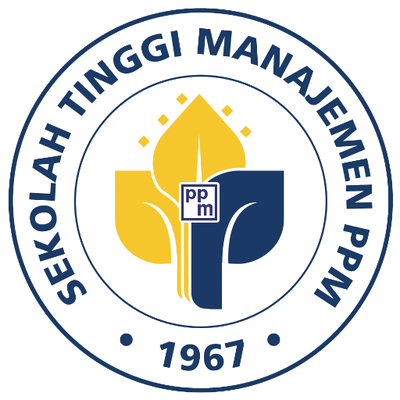Pencegahan Fraud: Pentingnya Faktor Internal dan Eksternal Pimpinan untuk Meminimalisir Fraud pada Perusahaan/Organisasi
Abstract
Keywords
Full Text:
PDF (Bahasa Indonesia)References
Ameilia, S. R. C., & Rahmawati, T. (2020). Pengaruh moralitas individu, efektivitas pengendalian internal, kesesuaian kompensasi, dan asimetri informasi terhadap kecurangan akuntansi. Jurnal Riset Keuangan Dan Akuntansi, 7(2), 44–56. https://doi.org/https://doi.org/10.25134/jrka.v7i1.4401
Araujo-Cabrera, Y., Suarez-Acosta, M. A., & Aguiar-Quintana, T. (2017). Exploring the influence of CEO extraversion and openness to experience on firm performance: The mediating role of top management team behavioral integration. Journal of Leadership & Organizational Studies, 24(2), 201–215. https://doi.org/https://doi.org/10.1177/1548051816655991
Caillier, J. G., & Sa, Y. (2017). Do transformational-oriented leadership and transactional-oriented leadership have an impact on whistle-blowing attitudes? A longitudinal examination conducted in US Federal Agencies. Public Management Review, 19(4), 406–422. https://doi.org/https://doi.org/10.1080/14719037.2016.1177109
Costa Jr, P. T., McCrae, R. R., & Dye, D. A. (1991). Facet scales for agreeableness and conscientiousness: a revision of the NEO personality inventory. Personality and Individual Differences, 12(9), 887–898. https://doi.org/https://doi.org/10.1016/0191-8869(91)90177-D
Ganiadi, F. L., Margianto, B. J., & Kristanti, M. (2021). Pengaruh big five personality traits terhadap niat untuk menginap di Green Hotel di Indonesia. Jurnal Manajemen Perhotelan 7(1):10-19 https://doi.org/https://doi.org/10.9744/jmhot.7.1.10–19
Gberevbie, D., Joshua, S., Excellence-Oluye, N., & Oyeyemi, A. (2017). ACcountability for sustainable development and the challenges of leadership in Nigeria. SAGE Open, 7(4), 1999–2015. https://doi.org/https://doi.org/10.1177/2158244017742951
Goldberg, L. (1990). An alternative “description of personality”: The big-five factor structure. Journal of Personality and Social Psychology, 59(6), 1216–1229. https://doi.org/https://doi.org/10.1117/12.642204
Gonzalez, G., & Kopp, L. (2017). The use of personality traits to predict propensity to commit fraud. Journal of Forensic & Investigative Accounting, 9(3), 979–1005. https://api.semanticscholar.org/CorpusID:209469636
Guntrip, H., & Sutherland, J. D. (2018). Personality structure and human interaction. Psychoanalysis https://doi.org/https://doi.org/10.4324/9780429478192
Hamid, A., & Nasih, M. (2021). Fraud prevention of village funds in East Java Indonesia. Management Science Letters, 11, 2033–2044. https://doi.org/https://doi.org/10.5267/j.msl.2021.3.006
Hamza, N., & Arif, I. (2019). Impact of financial literacy on investment decisions: The mediating effect of the big-five personality traits model. Market Forces, 14(1). https://kiet.edu.pk/marketforces/index.php/marketforces/article/view/386
Helena, H., & Widjaja, I. (2021). Pengaruh big five personality terhadap investment decision pada perusahaan peer to peer lending. Jurnal Manajemen Bisnis Dan Kewirausahaan, 5(3), 319–324. https://doi.org/https://doi.org/10.24912/jmbk.v5i3.11871
Herawaty, N., & Hernando, R. (2021). Analysis of internal control of good corporate governance and fraud prevention (study at the regional government of Jambi City). Sriwijaya International Journal of Dynamic Economics and Business, 4(2), 103. https://doi.org/https://doi.org/10.29259/sijdeb.v4i2.103-118
Huels, B., & Parboteeah, K. P. (2019). Neuroticism, agreeableness, and conscientiousness and the relationship with individual taxpayer compliance behavior. Journal of Accounting and Finance, 19(4), 181–193. https://doi.org/https://doi.org/10.33423/jaf.v19i4.2181
Iskandar, R., Ramadhan, M. S., Mansyuri, M. I., & Ramadhan, R. (2022). determinants of auditor’s ability to detect fraud: Internal and external factors. International Journal of Science, Technology & Management, 3(1), 179–195. https://doi.org/https://doi.org/10.46729/ijstm.v3i1.452
Jensen, M., C., dan W. M. (1976). Theory of the firm: Managerial behavior, agency cost and ownership structure. Journal of Finance Economic 3, 305–360. https://doi.org/https://doi.org/10.1016/0304-405X(76)90026-X
Mangala, D., & Kumari, P. (2017). Auditors’ perceptions of the effectiveness of fraud prevention and detection methods. Indian Journal of Corporate Governance, 10(2), 118–142. https://doi.org/https://doi.org/10.1177/0974686217738683
Maulida, W. Y., & Bayunitri, B. I. (2021). The influence of whistleblowing system toward fraud prevention. International Journal of Financial, Accounting, and Management, 2(4), 275–294. https://doi.org/https://doi.org/10.35912/ijfam.v2i4.177
Nugroho, R. D. (2023). Effect of perceived behavioral control and machiavellian nature of fraud prevention with whistleblowing as intervening variable. International Journal of Artificial Intelligence Research, 6(1.2). https://doi.org/https://doi.org/10.29099/ijair.v6i1.2.702
Pittroff, E. (2014). Whistle-blowing systems and legitimacy theory: A study of the motivation to implement whistle-blowing systems in German organizations. Journal of Business Ethics, 124(3), 399–412. https://doi.org/https://doi.org/10.1007/s10551-013-1880-2
Pratiwi, N. L. D., Mahaputra, I. N. K. A., & Ardianti, P. N. H. (2021). Pengaruh pengendalian internal, komitmen organisasi, kesesuaian kompensasi dan budaya organisasi terhadap pencegahan fraud pengadaan barang pada rumah sakit di Kota Denpasar. Jurnal Karya Riset Mahasiswa Akuntansi, 1(3), 1001–1007.
Putri, N. (2022). Pengaruh big five personality terhadap kecenderungan tindakan fraud accounting. Thesis. Universitas Negeri Padang.
Rasim Serdar Kurdoglu, Nufer Yasin Ates, D. A. L. (2023). Decision-making under extreme uncertainty: eristic rather than heuristic. International Journal of Entrepreneurial Behavior & Research, 29(3), 763–782. https://doi.org/https://doi.org/10.1108/IJEBR-07-2022-0587
Sari, R., Su’un, M., & Nurwanah, A. (2021). Effect of internal control, whistleblowing role and data asymmetry against fraud prevention. Point of View Research Accounting and Auditing, 2, 92–99. https://journal.accountingpointofview.id/index.php/povraa/article/view/118
Siregar, S. V., & Tenoyo, B. (2015). Fraud awareness survei of the private sector in Indonesia. Journal of Financial Crime. https://doi.org/https://doi.org/10.1108/JFC-03-2014-0016
Sudarma, Purnamawati, & H. (2019). Pengaruh persepsi karyawan mengenai budaya kejujuran dan whistleblowing system dalam pencegahan fraud pada PT. BPR Nusamba Kubutambahan. JIMAT (Jurnal Ilmiah Mahasiswa Akuntansi) Universitas Pendidikan Ganesha, 10(3), 435–446. https://doi.org/https://doi.org/10.23887/jimat.v10i3.22815
Sustika, A. D., Utami, I., & Hapsari, A. N. S. (2020). Whistleblowing for Fraud: Perspective of leadership types and accountability pressure. Asia Pacific Fraud Journal, 5(2), 161–170. https://doi.org/https://doi.org/10.21532/apfjournal.v5i2.153
Tantrabundit, P., & Narkbunnum, W. (2018). The effects of CEO’s personality on knowledge transfer and innovative performance in Thai SMEs. 3rd Technology Innovation Management and Engineering Science International Conference (TIMES-ICON), 1–5. https://doi.org/10.1109/TIMES-iCON.2018.8621848
Taufik, T. (2019). The effect of internal control system implementation in realizing good governance and its impact on fraud prevention. International Journal of Scientific and Technology Research, 8(9), 2159–2165.
Van Scotter, J. R., & Roglio, K. D. D. (2020). CEO bright and dark personality: Effects on ethical misconduct. Journal of Business Ethics, 164, 451–475. https://doi.org/https://doi.org/10.1007/s10551-018-4061-5
DOI: https://doi.org/10.34149/jmbr.v20i3.581
Indexing
JMBR Editorial Office: PPM School of Management, Jl. Menteng Raya 9-19 Jakarta 10340 Phone: 021-2300313 ext 2354

License
JMBR is using CC BY License
This work is licensed under a Creative Commons Attribution 4.0 International License.



















